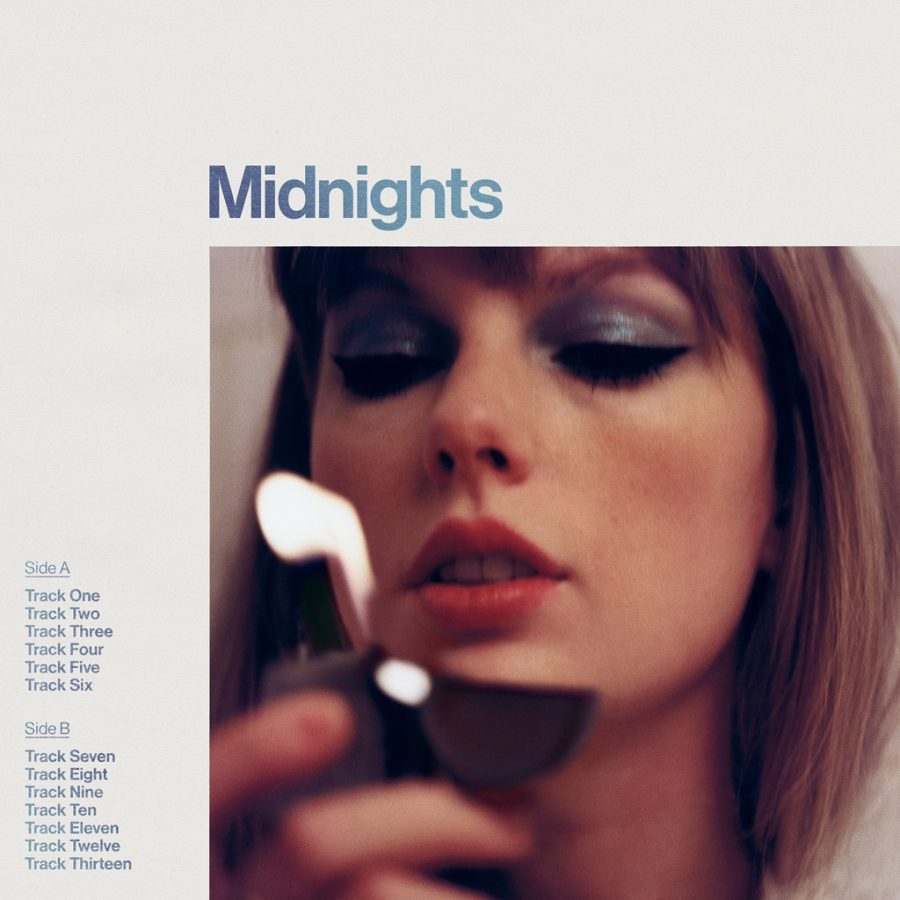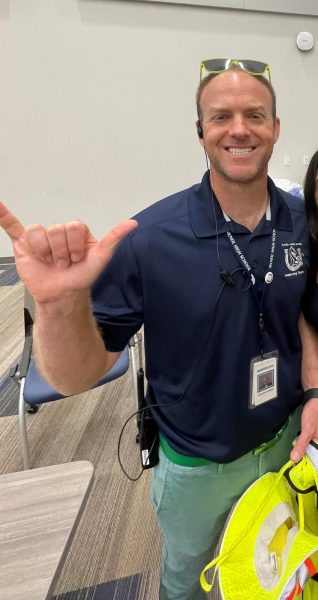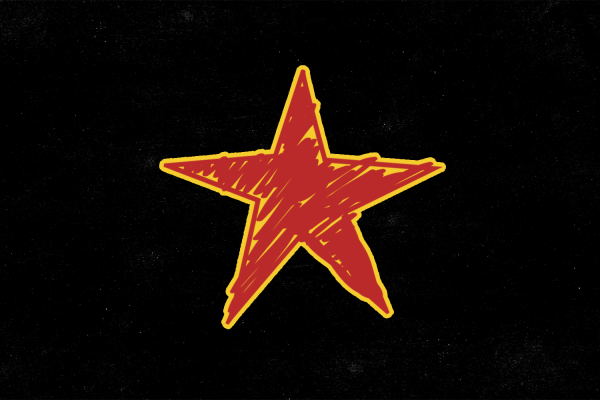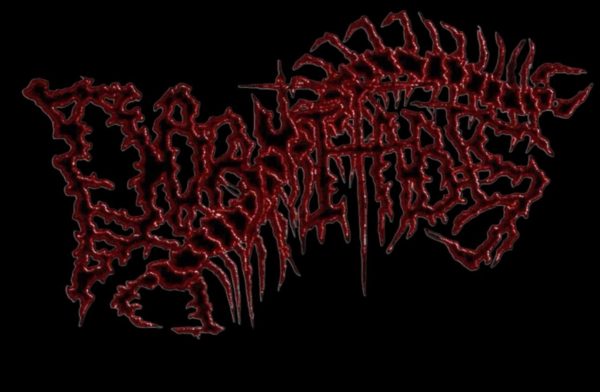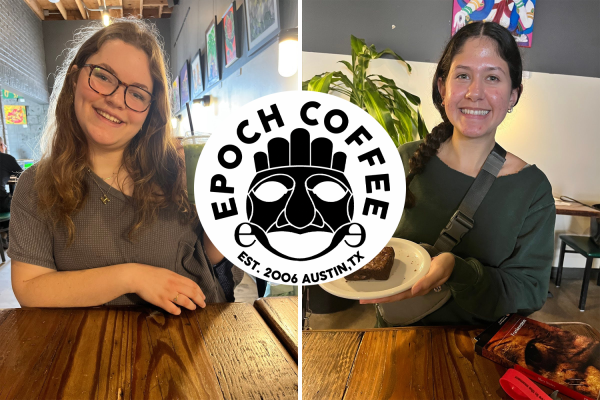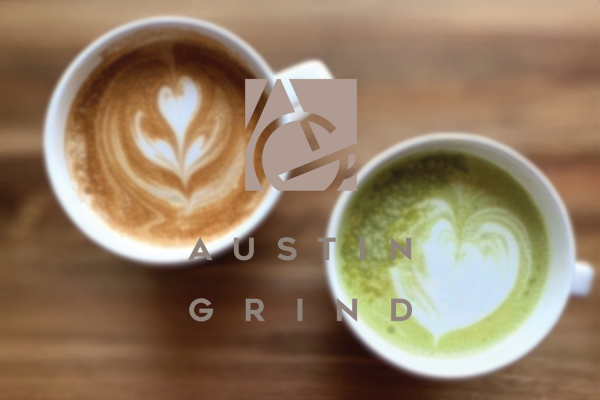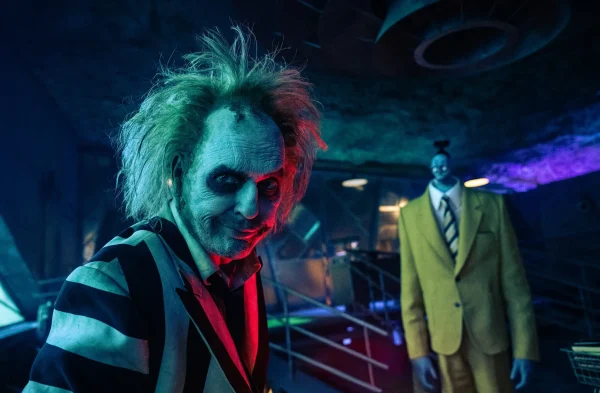Synthpop and Storytelling: Midnights Expands on Taylor Swift’s Songwriting Mastery
Image by taylorswift.com
Midnights, Taylor Swift’s tenth album, marks her return to the pop genre. Compared to her past eras, it is hazier and not as strong, producing a conversational effect reminiscent of sitting by the campfire and sharing stories.
Because the songs are set in different points of Swift’s life, cohesion and timelessness are difficult to accomplish. In the lyrics, this is intentional and fans can guess what era the songs are from, but the production bridges the remaining gap well.
Overall, the album is incredible with witty insights about human nature, growing up, and the pressures of internal and external expectations. Most songs are catchy and lyrically advanced, with allusions to politics and literature, but a couple fall short of the high bar Swift sets for herself because of how cringeworthy some lyrics are, but it’s part of the album and Swift’s songwriting charm.
Keep reading for all songs on Midnights, including the extended 3 AM release, reviewed!
1. Lavender Haze
Lavender Haze sets the tone for the album. It is about others’ expectations with a strong beat, groovy but insightful. She conquers societal expectations for her behavior; a couple standout lyrics are “All they keep asking me / Is if I’m gonna be your bride” and “Talk your talk and go viral.”
2. Maroon
Swift sings Maroon in a lower voice and conveys more maturity than Lavender Haze. The song is filled with imagery and a lot about red items – wine, lips, scarlet letters – that relate to the message of the song. It’s similar to Afterglow from the Lover album, with extended metaphors for love.
3. Anti-Hero
Anti-Hero has the same effect as Lorde’s Melodrama album. The bride is unique and illustrates the fear Swift has of someone never loving her. This is a continuous theme throughout the album and is just shown in a different way in Anti-Hero’s bridge.
4. Snow on the Beach
Snow on the Beach has simple lyrics. They still produce the same effect as the more complicated lyrics in Maroon and Question…?. Lana Del Rey is featured and the song combines their voices/styles together in a way that highlights both of their talents well. Unfortunately, the collaboration doesn’t feature Del Rey as fully as past collaborations where the featured artist sang a full verse by themselves.
5. You’re On Your Own Kid
The fifth song on the album, You’re On Your Own Kid, has the same melancholy, reflective tone that Swift’s fifth song on every album possesses: they’re known to be her most emotional songs. You’re On Your Own Kid is about growing up and challenges kids/teenagers face – eating disorders, being lonely, etc. The song is similar to This Is Me Trying (Folklore) and the Archer (Lover), with its face pace and no beat drop.
6. Midnight Rain
Midnight Rain has a weird, chunky synth intro that lasts for 30 seconds. Eventually, the song flows into a smoother synth song with an end fading out, clearly different from the beginning. The varying beats make it hard to focus on the well-written lyrics. Overall, the production is too much like 2016 pop music that is best left in 2016.
7. Question…?
Question…? is overflowing with imagery that allows it to flow easier than Swift’s past pop albums. The verse with “politics and gender roles” is more controversial and reveals her opinions that she didn’t share during that era. Question…? shows many similarities to Madwoman in Folklore.
8. Vigilante S***
Vigilante S*** is an extended metaphor for the power of women, uniting with one of her enemies ex-wives. It’s powerful, catchy and Swift’s personality shines through. Unfortunately, it will probably be used in lame TikTok edits, and while it is not Swift’s fault, it tarnishes the public’s perception of the song.
9. Bejeweled
Bejeweled is filled with metaphors that convey how intelligent Swift’s songwriting really is, comparing her love and how she’s treated with a penthouse and basement of a mansion. The production really makes the song sound sparkly and encrusted with gems, similar to Gold Rush from Evermore.
10. Labyrinth
Labyrinth’s concept works well. The soft beat and Swift’s quieter singing make listeners lost in the song, similar to losing your path in a maze. Sandwiched between Bejeweled and Karma, fast pop songs, transitioning in and out is a bit of a shock.
11. Karma
Swift packed Karma full of personification for Karma and emphasizing the love Karma has for her. The song is a darker pop and is fun, mixing Reputation and Lover. Her personality shines through this song, resulting in some cringeworthy lyrics, like “me and Karma vibe like that.” Only one thing remains, which is for Swift to release the highly hypothesized about Karma album.
12. Sweet Nothing
Sweet Nothing highlights the piano vs guitar/drums in most of the songs in Midnights. Unlike other songs in the album, this one is co-written with her romantic partner and is packed with details/imagery that allows the listener to experience the love they have for each other. The lyrical content is similar to Our Song from her debut album.
13. Mastermind
Mastermind has a faster, most upbeat, happier beat. It acts as a good conclusion to the album. In comparison to Lavender Haze, which opens the album, Mastermind closes in a much more “pop” way.
Swift also released seven more songs as her “chaotic surprise” three hours after Midnights’ original release. Here are the reviews of all 3 AM version songs.
The Great War
The Great War symbolizes the struggle of loving someone. Her songwriting is particularly masterful and understands the nuances of war, as highlighted by “Place a poppy in my hair / There’s no morning glory” and “You drew up some good faith treaties.”
Bigger Than The Whole Sky
Bigger Than The Whole Sky is a slower song, similar to Bejeweled, and about the hole heartbreak leaves in the aftermath of a breakup. The line “would’ve, could’ve, should’ve” is repeated throughout the song as well as “goodbye, goodbye, goodbye.” Swift uses phrases in groups of three throughout the song.
Paris
Paris is upbeat and luxurious as Swift sings about a metaphorical fancier lifestyle to reflect the richness of her love. It sounds like a song from Swift’s Lover album.
High Infidelity
Swift examines infidelity and how it affects both sides of an unstable relationship as the cheater dances around the truth. Once again, there’s lots of imagery to place the listeners in her situation.
Glitch
Glitch doubles down on the synthpop for the lyrical and conceptual connection. Her lyrics are high level, referencing the Blood Moon and how rare they are in astronomy.
Would’ve, Could’ve, Should’ve
Would’ve, Could’ve, Should’ve is an extended metaphor for loving someone and wondering what you could’ve done better. Swift expands the theme of growing up with insights about losing girlhood and what it’s like to grow up in this generation through extended metaphors about religion and praying to a God. Fans speculate that Mastermind is about John Mayer.
Dear Reader
Dear Reader fully wraps up the album in the format of a story. It has a slow intro and piano, similarly to Sweet Nothing. It ends the full, extended album with a slower song with stylistic choices similar to Folklore and Evermore, her most recent albums, tying everything together.
Your donation will support the student journalists of McNeil High School. Your contribution will allow us to purchase equipment and cover our annual website hosting costs.

